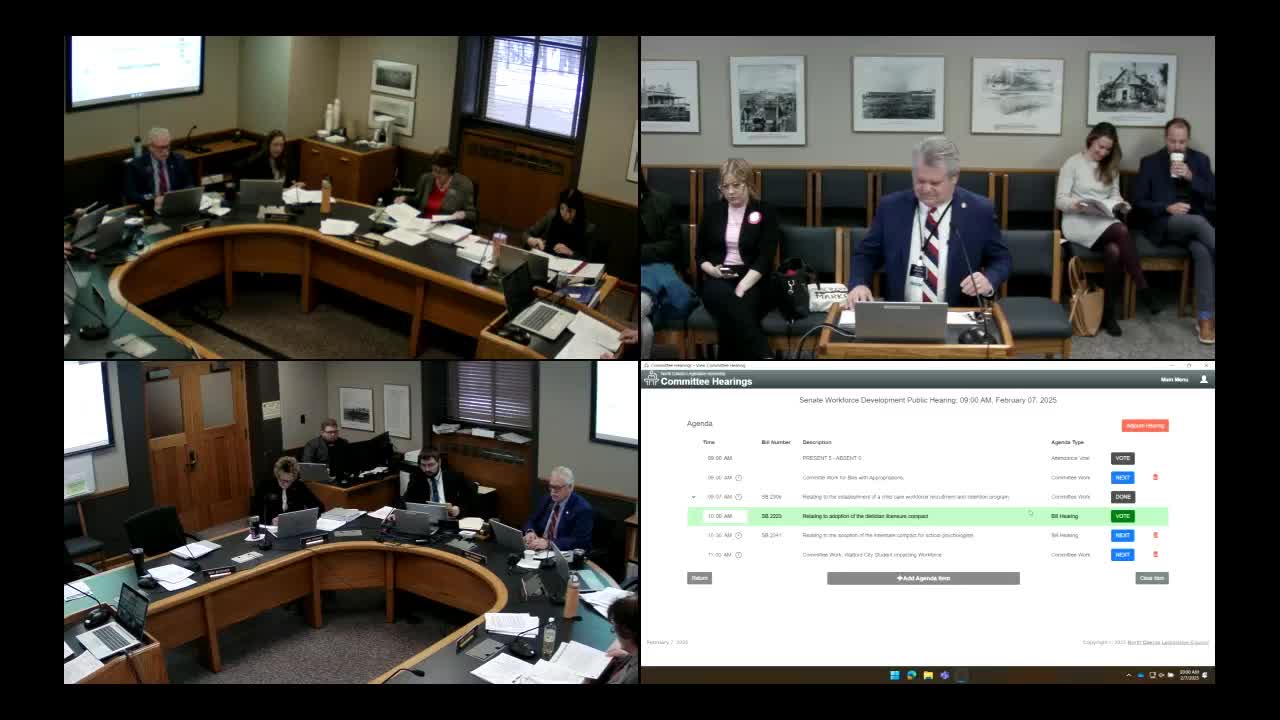Committee approves dietitian licensure compact bill SB 2223 as amended
Get AI-powered insights, summaries, and transcripts
Subscribe
Summary
The Senate Workforce Development Committee adopted a spelling-correction amendment and voted to give Senate Bill 2223 a "do pass" recommendation. Supporters said the compact would expand telehealth and licensure portability for dietitians and help military families; the North Dakota Board of Dietetic Practice testified in favor.
The Senate Workforce Development Committee voted to adopt an amendment to correct a misspelling and then recommended Senate Bill 2223, which would adopt the dietitian licensure compact, be given a "do pass" recommendation to the full Senate.
Amanda Immelz, a registered dietitian and representative of the North Dakota Board of Dietetic Practice, testified that the compact would expand access to nutrition care across state lines, support military families by easing licensure transfer, facilitate telehealth nutrition services and reduce administrative burdens for dietitians and licensing boards. Jay Sheldon, administrator of the North Dakota Military Commission, also testified in support and said the compact is a Defense State Liaison Office priority because it affects quality-of-life factors for military members and their families.
Committee action: members moved to adopt an amendment to correct the spelling of "dietitian" in the bill text; the amendment was adopted. After amendment adoption, a motion to give SB 2223 a "do pass" recommendation as amended was made and carried. The clerk recorded the committee vote as passing; the committee recorded no appropriation tied to the bill. Senator Axman indicated she will carry the bill to the floor.
What the compact would do: testimony described the compact as a multistate licensure agreement that would allow dietitians to practice in member states via a streamlined process while retaining home-state licensure. Witnesses said the compact supports telehealth delivery of nutrition therapy and reduces duplicate licensing paperwork and fees for practitioners who choose to participate.
Implementation questions raised: witnesses and senators asked how many states had enacted the compact (witness said three to date), how many were required to activate the commission (seven states) and how compact participation fees would be structured. Amanda Immelz said fees to participate in the compact had not yet been set but suggested stakeholder estimates in other compacts near $200 annually; the committee noted final fee-setting and administrative rules would be determined by the compact’s initial member states.
Next steps: the committee recommended the bill “do pass” as amended; a committee member volunteered to carry the bill to the floor for further consideration.
